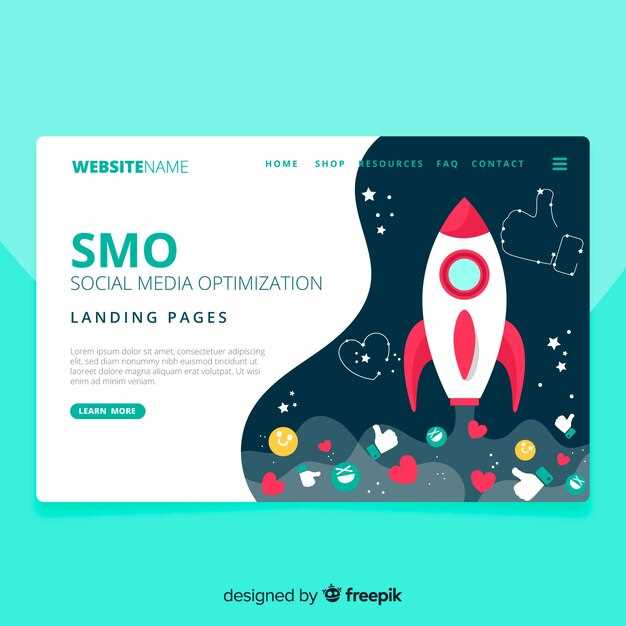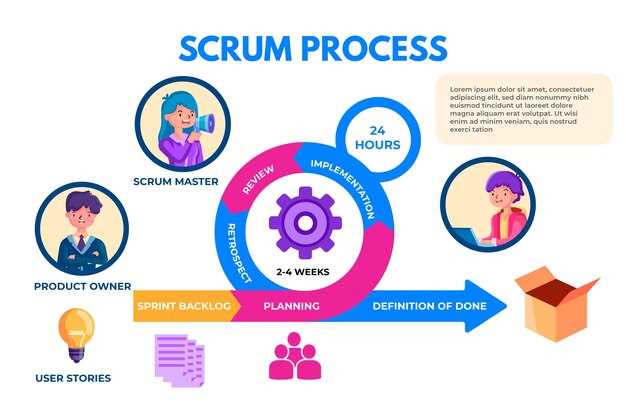Embrace CTO-as-a-Service to catapult your startup towards success. As technological demands soar, startups often find themselves amidst an array of complex tech challenges without the necessary expertise. Opting for a CTO-as-a-Service can become a strategic advantage, providing the technological acumen needed to navigate these complexities with confidence and precision. This approach bridges the gap between burgeoning tech requirements and resource limitations, ensuring your startup remains competitive and resilient in 2025.
Outsourcing CTO duties grants startups the expertise of highly skilled technology leaders without the burdensome costs of a full-time executive. By leveraging advanced technical guidance tailored to your specific needs, your business can refine its technological strategy and enhance operational efficiency. Such services are scalable, allowing you to adjust the level of support as your startup grows and evolves. This flexibility is crucial for startups that need to pivot or scale rapidly in response to market opportunities.
Moreover, integrating CTO-as-a-Service into your startup not only optimizes your technology budget but also strengthens your company’s innovation capacity. These seasoned technology professionals bring a wealth of experience from various industries, offering fresh perspectives and innovative solutions to technical challenges. Their expertise facilitates the swift incorporation of cutting-edge technologies, ultimately speeding up the development cycle and boosting product quality.
Streamlining Technical Leadership in Emerging Companies

Begin by leveraging CTO-as-a-Service (CTOaaS) to quickly access high-level technical expertise without long-term commitments. This approach offers startups flexibility and scalability, which are essential for responding to industry shifts.
- Scalability on Demand: Adjust the level of technical leadership as the business grows without the hurdles of full-time employment contracts. This ensures startups effectively match their leadership capabilities with their current needs.
- Access to a Diverse Skill Set: CTOaaS providers bring a broad range of technical skills and experiences, which are immediately accessible and can drive innovation across various domains, from software development to cloud infrastructure.
- Cost Implications: Optimize your budget by selecting services tailored to specific requirements, rather than covering the cost of a full-time executive. You save on salaries, benefits, and operational costs.
- Focus on Core Competencies: By outsourcing technical leadership, internal teams can concentrate on what they do best, be it product development, customer acquisition, or market expansion, while technology strategies are expertly managed.
- Rapid Implementation of Strategies: Experienced professionals from CTOaaS frameworks can quickly evaluate your tech landscape and deploy strategies to enhance productivity and efficiency, enabling faster progress from idea to market.
Adopt CTOaaS to harness expert technical leadership that aligns with your strategic direction, ensuring growth and innovation without the inertia that can accompany traditional hiring processes.
How CTO-as-a-Service Addresses the Talent Gap
CTO-as-a-Service (CTOaaS) solves the talent gap by providing startups with immediate access to seasoned technology leaders without the need for full-time hires. When tech leadership is required, hiring an in-house CTO often encounters delays due to recruitment challenges and high salary costs. CTOaaS eliminates these barriers by offering flexible, on-demand expertise tailored to specific needs, ensuring startups can progress without interruption.
Startups often struggle to compete with larger enterprises for top technical talent. CTOaaS providers bring an extensive network of experienced professionals, allowing startups to benefit from high-level strategic direction on a scalable basis. This model not only saves recruitment time but also provides the flexibility to adjust the level of support as the company grows.
An often overlooked advantage of CTOaaS is the breadth of experience these professionals bring. Having worked across various industries and technology landscapes, they come prepared with a toolkit of best practices and innovative solutions, immediately applicable to the startup’s challenges.
| Benefits | Description |
|---|---|
| Cost-Effective | Reduces the financial burden of hiring a full-time CTO by allowing startups to pay only for the services they need. |
| Flexible Engagement | Offers adjustable commitment levels, whether for a few hours a week or more intensive involvement during critical periods. |
| Access to Expertise | Provides immediate access to seasoned technology leaders with a broad range of skills and industry insights. |
| Speed to Market | Accelerates product development cycles by leveraging expert guidance, ensuring startups can quickly adapt to market demands. |
Incorporating CTOaaS allows startups to maintain focus on their core competencies while delegating complex technical decisions to trusted experts. This strategic allocation of resources is crucial for startups aiming to scale efficiently and effectively, embracing technological advancements without the overhead.
Cost-Effectiveness: Budget Management for Startups
Leverage CTO-as-a-Service to strategically allocate resources. Prioritize technology investments that align directly with your business model and scalability. This approach allows you to avoid unnecessary expenditures and focus on systems and solutions that propel growth.
Outsource technical leadership through CTO-as-a-Service to gain access to experienced professionals at a fraction of the cost of a full-time executive. By doing so, you ensure that your technology roadmap is crafted by experts who focus on long-term business objectives.
Utilize cloud-based solutions recommended by your contracted CTO to minimize upfront infrastructure costs. Cloud services enable pay-as-you-go models, reducing initial expenses and allowing reallocation of funds to other critical areas.
Measure ROI meticulously on all technology implementations. Collaborate with your CTO consultant to establish clear metrics and KPIs. Regular assessment ensures that your investments tangibly contribute to the bottom line, allowing swift pivoting where necessary.
Integrate automated financial tools suggested by the service provider to streamline expense tracking and forecasting. This proactive monitoring aids in identifying potential cost-saving opportunities while ensuring financial stability as your startup scales.
Incorporate agile methodologies, focusing on rapid iteration and feedback. This technique, promoted by CTO-led strategies, reduces development costs by enhancing efficiency and minimizing waste throughout the project lifecycle.
Negotiate with software and hardware providers to secure startup-friendly rates. A CTO on your team is adept at leveraging industry ties to obtain discounts, ultimately decreasing overall expenses and facilitating sustainable growth.
Enhancing Agility: Adapting to Rapid Technological Changes
Leverage a flexible roadmap to ensure your startup can pivot swiftly as new technologies arise. Regularly reassess your tech stack every quarter to identify potential gaps or opportunities for integration with emerging tools. This schedule allows for timely updates without overwhelming your team.
Encourage a culture of continuous learning and experimentation within your team. Provide access to online courses, webinars, and workshops, focusing on upcoming trends like AI, blockchain, and quantum computing. Allocate dedicated time for team members to explore these technologies and propose innovative applications relevant to your business.
Integrate a modular architecture when designing or upgrading your systems. Such an infrastructure facilitates efficient adaptations and scalability. Opt for microservices and APIs that enable seamless incorporation of new functionalities or services without disrupting existing processes.
Foster collaboration with tech communities and professionals outside of your organization. Engage in industry forums, meetups, and startup expos to stay informed about the latest technological advancements. These connections can offer insights and firsthand experiences that help predict shifts and prepare your business accordingly.
Implement regular feedback loops with customers and stakeholders. Collect insights on changing preferences and evolving demands through surveys, interviews, and social media analytics. Use this data to promptly adjust your offerings and stay ahead of competitors more resistant to change.
Scalable Technology Solutions for Growing Businesses
Identify and implement cloud-based infrastructure solutions that allow startups to handle increased loads without compromising performance. Adopt providers like AWS, Google Cloud, or Azure, which offer flexible scaling capabilities and pay-as-you-go pricing models.
Ensure a microservices architecture to enhance modularity, allowing individual components to scale independently. This reduces bottlenecks and improves responsiveness as demand increases. Leverage containerization systems like Docker and orchestration tools such as Kubernetes for efficient resource management.
Automate routine processes through DevOps practices to enhance deployment speeds and resource utilization. Implement continuous integration and continuous deployment (CI/CD) pipelines for rapid updates and error reduction, ensuring your tech stack evolves with your needs.
Optimize the tech stack by using scalable databases such as Amazon RDS or MongoDB Atlas. These solutions support horizontal scaling and offer automated backups and recovery options, ensuring data integrity and availability as your business grows.
| Solution | Benefits |
|---|---|
| Cloud Infrastructure | Scalable resources, cost-efficient, high availability |
| Microservices Architecture | Independent scaling, enhanced modularity, reduced bottlenecks |
| DevOps Automation | Faster deployments, efficient resource management, improved innovation |
| Scalable Databases | Horizontal scaling, automated backups, improved data integrity |
Practical Advantages of CTO-as-a-Service for Startups

Startups should invest in CTO-as-a-Service to gain immediate access to high-level technical expertise without the long-term commitment. This approach allows new companies to allocate resources efficiently by tapping into seasoned professionals who can guide pivotal technology decisions.
Hiring a full-time CTO often requires a significant budget that many startups lack. CTO-as-a-Service provides an alternative by offering scalable services, allowing you to pay only for the expertise you need. This flexibility enables startups to focus on growing their core business while still receiving top-tier technical guidance.
Speed to market is another major advantage. With a team of experts ready to oversee technology development, startups can accelerate their product launches. This is crucial in competitive industries where the early release of innovative solutions can provide a considerable edge.
CTO-as-a-Service also ensures that startups maintain technological currency. External experts stay abreast of the latest trends and innovations, passing that knowledge on to the companies they work with. This continued education is invaluable for startups aiming to innovate without falling into technological obsolescence.
Moreover, a fractional CTO provides an objective perspective that might be lacking internally. They can offer unbiased analysis and strategic advice tailored specifically to the startup’s needs. This injection of independent insight helps guide technology strategies that align perfectly with business goals.
Expertise on Demand: Accessing Specialized Knowledge
Engage a CTO-as-a-Service to instantly tap into a reservoir of specialized knowledge. Leverage industry-specific insights that align with your startup’s unique challenges and goals. Instead of investing months in scouting and onboarding a full-time CTO, benefit from a flexible arrangement tailored to your company’s specific needs. Whether it’s cloud architecture, security protocols, or aligning tech strategy with business objectives, accessing expert advice precisely when needed offers agility and responsiveness.
Startups frequently face hurdles in technology selection and integration. A CTO-as-a-Service brings years of experience with cutting-edge technologies and best practices, ensuring that your startup adopts the right solutions from the onset. This service allows startups to bypass costly mistakes, propelling them toward rapid growth and better positioning within competitive markets.
Furthermore, this model stimulates creativity within your team. With an expert’s guidance, your team can focus on core competencies while ensuring your tech stack evolves with industry trends. Immediate access to expert advice also means potential issues are addressed proactively, minimizing downtime and enhancing overall productivity.
Seamlessly incorporating a growth-oriented perspective, CTO-as-a-Service ensures your startup’s technology infrastructure scales efficiently with business demands. From conducting technical audits to implementing robust development workflows, you receive tailored strategies that drive innovation and maintain a competitive edge.
Implementing Robust Security Protocols
Appoint a specialized security team or partner with a CTO-as-a-Service provider to ensure continuous monitoring and updates. Focus on implementing advanced authentication methods like two-factor authentication (2FA) and biometric verification. Encrypt sensitive data using leading encryption standards such as AES-256 to safeguard against breaches.
Regularly conduct vulnerability assessments and penetration testing to identify and rectify potential vulnerabilities promptly. Leverage machine learning algorithms to detect anomalies and suspicious activities, allowing for real-time threat mitigation.
Encourage a security-first mindset across all organizational levels. Host regular training sessions and workshops to educate your team on identifying phishing attempts and other social engineering tactics. This proactive approach equips employees with the knowledge needed to prevent potential security breaches.
Collaborate with experienced CTO-as-a-Service professionals to formulate a disaster recovery plan. This plan should include data backups stored in secure, off-site locations and a clear protocol for restoring systems efficiently in the event of a breach.
Finally, ensure that your startup complies with relevant industry standards and regulations like GDPR or CCPA. This not only protects consumer data but also helps avoid legal repercussions. Regular audits will confirm adherence to these protocols, providing additional peace of mind.
Strategic Guidance for Tech-Driven Innovation
Leverage a CTO-as-a-Service model to gain insights into emerging technology trends that can shape your startup’s growth. Prioritize regular tech audits to evaluate current systems against future tech trends. This proactive approach ensures that your infrastructure and team can adapt swiftly.
- Implement agile methods to stay responsive to market changes. Regular sprint reviews facilitate faster iteration on products and services, aligning them with user feedback.
- Engage with data analytics to inform decision-making. By tracking KPIs and analyzing customer behavior, you can identify new opportunities and optimize existing processes.
- Focus on fostering a culture of innovation within your team. Encourage experimentation and learning, rewarding creative approaches that lead to breakthroughs.
- Build strategic partnerships with tech communities and other startups. These alliances provide access to resources, knowledge, and networks that can propel innovation.
- Invest in continuous learning and upskilling for your team. This keeps skills sharp and relevant, ensuring your team can tackle new tech challenges confidently.
Harness these strategies to maintain a competitive edge and drive sustainable growth through tech innovation.
Time-Saving Solutions: Focus on Core Business
Engage a CTO-as-a-Service to streamline technological workflows, allowing your team to concentrate on product development and growth strategies. Here’s how:
- Automated Processes: Implement automation for routine IT maintenance tasks. This reduces manual involvement, freeing up resources for strategic initiatives.
- Scalable Infrastructure: Utilize cloud solutions that adapt to your startup’s needs, minimizing downtime and ensuring smooth scaling during rapid growth phases.
- Efficient Communication: Establish clear communication channels. This fosters effective collaboration and quick decision-making throughout the team.
- Strategic Vendor Management: Leverage the expertise of a CTO to negotiate favorable contracts with technology vendors, ensuring quality and cost-effectiveness.
- Data-Driven Decision Making: Implement advanced analytics tools to gather and analyze data. Use insights to guide business decisions, optimize operations, and enhance customer experiences.
- Risk Mitigation: Develop robust cybersecurity measures to protect assets and maintain client trust. Preventive strategies reduce risks and ensure business continuity.
- Focus on Core Competencies: Outsource non-core IT functions and support tasks to external specialists, allowing your internal team to focus on innovation and client solutions.
By adopting these strategies, your startup can streamline operations, reduce overhead, and drive growth through focused efforts on core business areas.
Video:

The Crucial Role of a CTO in Building a Startup
The Crucial Role of a CTO in Building a Startup
Q&A:

What exactly does CTO-as-a-Service mean for startups?
CTO-as-a-Service provides startups with access to experienced technology executives without the need for a full-time hire. This model allows startups to benefit from the strategic guidance of a Chief Technology Officer (CTO) on a flexible basis. It can include services like tech roadmap development, team management, and guidance on technology decisions, all adapted to the specific needs and size of the startup.
How does CTO-as-a-Service benefit startups financially?
CTO-as-a-Service offers financial benefits by reducing the overhead costs associated with hiring a full-time CTO. Startups can limit expenses to a part-time arrangement, paying for only the services they need. This allows them to allocate resources more efficiently and focus financial efforts on growth and development rather than on extensive salary packages and other employment costs.
What are the potential risks of using CTO-as-a-Service for a startup?
One risk is the potential lack of deep organizational integration since the CTO is not a full-time member of the team. This can sometimes lead to communication gaps or misalignment with the company culture. Additionally, reliance on a third-party CTO may lead to challenges in responsiveness compared to an in-house executive. It’s crucial for startups to establish clear communication protocols and expectations to mitigate these risks.
Can CTO-as-a-Service help startups with technological scalability?
Yes, CTO-as-a-Service can significantly aid in scalability by providing expertise in designing systems and processes that accommodate growth. By leveraging a CTO’s knowledge, startups can develop scalable architectures and adopt best practices in tech stack development that prepare them for scaling operations efficiently as they expand.
Is CTO-as-a-Service suitable for all types of startups?
While CTO-as-a-Service can be highly beneficial, it might not be suitable for all startups. It depends on the company’s specific needs, size, stage of development, and industry. For example, tech-centric startups with complex technology demands might require a full-time CTO for optimal performance. However, for many startups, particularly in early stages or in non-tech-focused industries, CTO-as-a-Service can provide the strategic direction needed without committing to a full-time position.
How does CTO-as-a-Service provide value to startups with limited technical expertise in 2025?
CTO-as-a-Service offers startups access to experienced technology leadership without the need for a full-time hire. This service can be particularly beneficial for startups with limited technical expertise, as it allows them to understand their technical needs and strategies effectively. In 2025, CTO-as-a-Service can guide startups through complex challenges such as cloud infrastructure management, cybersecurity measures, and choosing the right technology stack to align with their business goals. By providing tailored strategies and oversight, this service helps startups avoid costly mistakes and accelerates their growth by making informed technological decisions.



